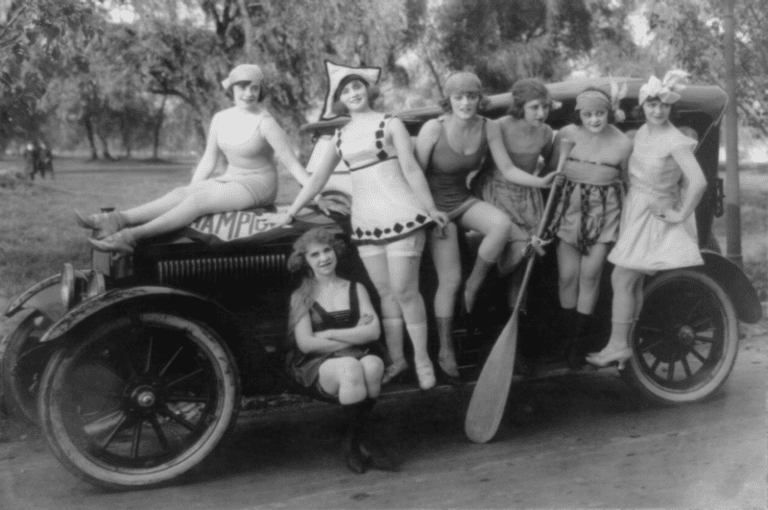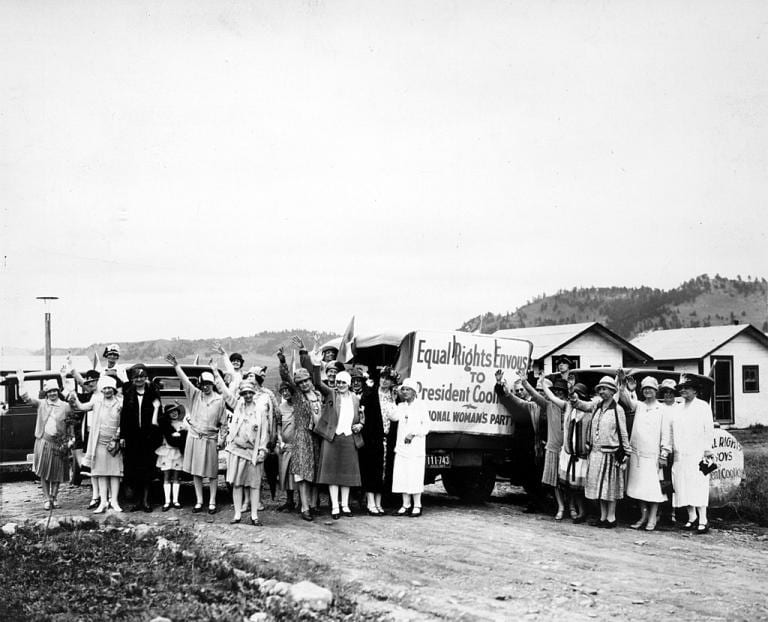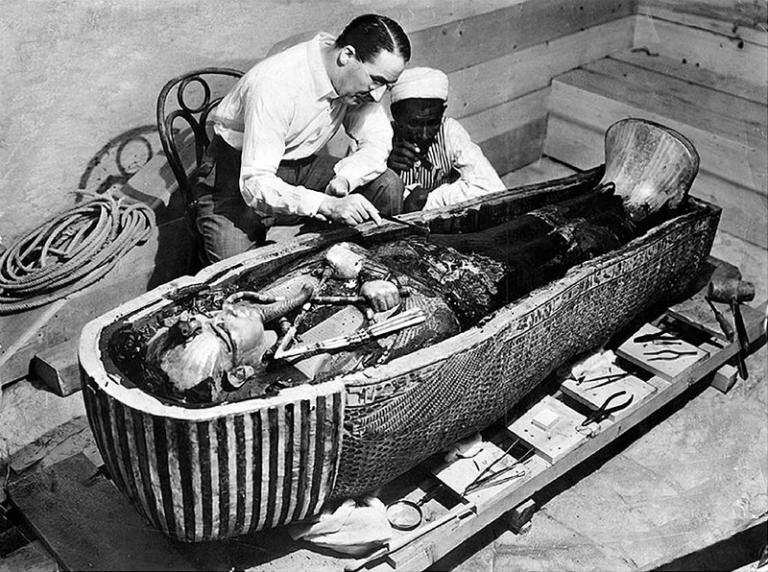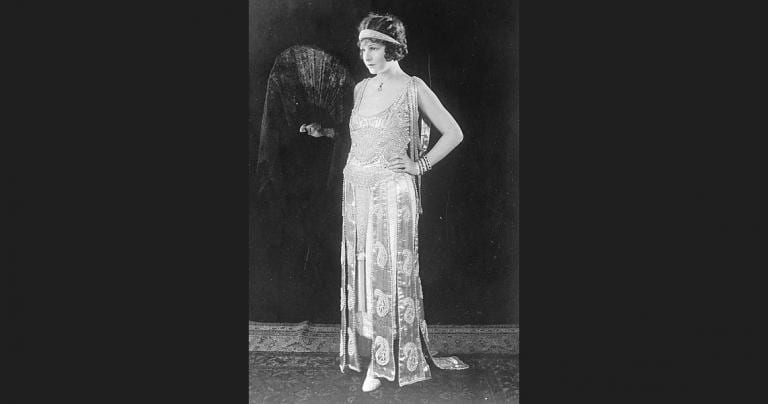Recently I’ve seen memes floating around with pictures of flappers saying “this is your official notice that the 20s begin in 60 days.”
As of today, the 20s begin in 50 days.
Of course, we’re talking about the 2020s, not the 1920s.
The first thing that hit me was how old that makes me feel. I remember the 1920s. No, I’m not that old. Neither are/were my parents. But the three grandparents I knew were born in 1898, 1903, and 1907 – they remembered the 20s. And they talked about them, so I have a second-hand knowledge of what life was like in the 20s… at least in rural Tennessee. Which I imagine was rather different from what life was like in New York or Chicago. Regional differences were a lot bigger then than they are now.
Saying I “remember” the 1920s is like my young adult friends saying they remember the 1960s. The 1920s are to them as the 1880s are to me.
And now I really feel old.

Time is a natural phenomenon. Measuring time is a human invention. Of our common measures, the day (one rotation of the Earth on its axis) and the year (one revolution of the Earth around the Sun) are set by Nature. Months are based on the cycles of the Moon, but most calendars make adjustments to align with the solar year. Hours, minutes, seconds, and weeks are human creations.
And so are decades and centuries. If we had twelve fingers and toes instead of ten, our number system would be base-12 instead of base-10 and we’d be talking about dozens and grosses of years.
Of more relevance than decades and centuries are some of the longer astrological cycles, such as the upcoming end of a 200 year Jupiter-Saturn cycle.
But we do have ten fingers and toes, and so while decades and centuries may not be part of Nature’s source code, they are a relevant part of our culture and our imaginations – they’re important because we make them important. That makes looking back to the 1920s – and forward to the 2020s – a worthwhile exercise.
Most of what I’ve got is based in U.S. history, or at least from a U.S. viewpoint. If you have things you’d like to add from other countries and cultures, please list them in the comments.
A few historical notes from the 1920s
We like to think of the 1920s as the decade of jazz, whimsical fashion, silent movies, and bathtub gin. But that was only a small portion of it.
Prohibition began January 16, 1920. That gave rise to two other memorable elements from the 20s: bootleggers and gangsters. Prohibition of alcohol ended in 1933, but the equally damaging War on Drugs is still going on.
The 19th Amendment, which guaranteed American women the right to vote, was ratified August 18, 1920. A century later, women make up only 23% of U.S. Representatives. Could 2020 finally be the year we see a woman President?

The 1920s were a time of isolationism in America. Congress refused to join the League of Nations after World War I. Republican Warren G. Harding won the Presidency running on a campaign of “return to normalcy.”
The height of the Ku Klux Klan was neither during Reconstruction nor during the Civil Rights Era – it was in the 1920s. The Klan presented itself as the guardian of morals and stability, and against Jews, Catholics, immigrants, communists, and of course, African Americans. Its membership peaked at over 4 million, or 3.8% of the population.
In Italy, Benito Mussolini became Prime Minister in 1922 as head of the National Fascist Party. He was the first of the major European fascists, before Hitler in Germany in 1933 and Franco in Spain in 1939. Mussolini was executed by resistance fighters just before the end of World War II in 1945.
The Roaring 20s came to an end on “Black Tuesday’ – October 29, 1929. The stock market collapsed after years of unregulated speculation, leading to the Great Depression.
Important happenings for the Pagan movement
Aleister Crowley established the Abbey of Thelema in Sicily in 1920. It lasted until 1923, when Crowley was kicked out of Italy by the fascists. The building still exists but it’s falling down.
In Egypt, the tomb of King Tutankhamun was discovered in 1922. It had been undisturbed since his death over 3200 years earlier. The treasures are spectacular – I saw some of them in 2009.

Doreen Valiente, the Mother of Modern Witchcraft, was born in England in 1922.
Perhaps most significantly, Margaret Murray’s The Witch-Cult in Western Europe was published in 1921. Murray was a very good Egyptologist whose historical work on the European witch trials was filled with critical errors. Carl Jung said “people don’t have ideas – ideas have people.” The idea of witchcraft as the remnants of a Pagan Goddess religion had Murray, she publicized it brilliantly, and the rest is (Neopagan) history.
Looking forward to the 2020s
What do the next 20s have in store for us? Ten years is a long time, and different people in different places will have different responses to different situations.
In the short term, I’m concerned about a recession. The current economic expansion has been going on since the bottom of the Great Recession in 2009 – that’s a very long time. Plus trade wars aren’t good for anyone’s economy.
I’m optimistic that Donald Trump will be defeated next year. But I didn’t think he could win in 2016, so I’m not sure how much faith you should put in my projections. If he loses there will likely be a short-term stock market dip – Wall Street is afraid of higher taxes. If he wins, who knows – Wall Street doesn’t like his unpredictability either. In either case, there will be no “return to normalcy.”
In the long term, China will surpass the U.S. and the E.U. as the dominant economic power. Will they try to turn that economic power into military power? Probably. Will they use it? Who knows.
The world climate will continue to shift in ways that are unfavorable to humans and other species, especially those living in arid or low-lying areas. Expect more refugees… and more nasty reactions to refugees and other people in need.
Tower Time in the 2020s
The metaphysical shifts we’ve been talking about since 2011 and seeing since 2016 will continue. This is not a short-term phenomenon. It’s a long-term trend. Expect the high strangeness to continue and intensify.
At this year’s Mystic South conference several of us discussed the concept of astronomical precession. This is the physical phenomenon that sends the Earth through one house of the zodiac about every 2100 years. That means that 12,500 years ago we were 180 degrees opposite where we are now. Some of us have reason to believe that was our last “magical maximum.” Now, after 12,500 years of declining magic we have made a sudden shift toward increasing magic. This idea needs more exploration, something I expect to see – from me and from many other – in the coming years.
Good art as a response to bad times
It’s a cliché that bad times inspire good art. I’m not sure how true that is. Sometimes it just inspires vapid escapism, particularly when the major channels of art and entertainment are controlled by corporate behemoths. What gets funded is what makes people spend money, not what makes people think.
The good news is that technology has made the barriers to entry virtually non-existent. Anybody can write a blog, publish an e-book or a print-on-demand book, or shoot a movie on their phone and put it on YouTube. You can’t make a living doing it, but if you have something to say, you can find a place to say it.
And if what you have to say resonates with people, they will hear you.

Ideas have people – what idea has grabbed ahold of you and wants you to help it spread?
Which one of us will be the next Margaret Murray, spreading an idea that may not have been true before but needs to be true now?
The 1920s were not a decade of non-stop party and fun, particularly for those who weren’t young, rich, and white. The 2020s won’t be either.
But I hope that when 2120 arrives and people look back to us, what they find is inspiring.
And if it’s also fun and beautiful and maybe a bit whimsical, so much the better.
















